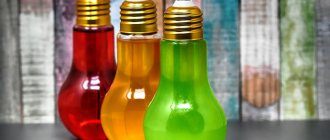Are energy drinks good or bad? Energy drinks are designed to invigorate physical and mental activity. The energy drink specifically stimulates the human central nervous system. Every year, energy drinks are becoming more and more popular in the carbonated drink market.
Energy drink consumption has increased dramatically over the past two decades, especially among teenagers and young adults. Energy drinks are heavily marketed with advertising claims that the product gives you energy and energy to improve physical and cognitive function.
The drink typically contains large amounts of caffeine, added sugars, other additives and legal stimulants such as guarana, taurine and L-carnitine. These legal stimulants can increase alertness, attention, energy, blood pressure, and heart rate.
Drinks are often used by students to provide an extra boost of energy. However, the stimulants in these drinks can have harmful effects on the nervous system.
Our review was designed to identify the positive and negative health effects associated with energy drink consumption. Based on the review, the conclusion is that energy drinks may have beneficial effects on physical performance, but the product also has harmful effects.
Frequently asked questions about energy drinks
- Is it possible to drink expired energy drinks? It is forbidden. At the very least, this risks poisoning. An energy drink is a product like any other. It's better to buy a new can of energy drink than to put yourself at risk.
- Can teenagers drink energy drinks? Just because an energy drink does not contain alcohol does not mean it is unsafe. Persons 15-16 years old are not recommended to drink this drink.
- Can children under 13 years old drink energy drinks? If teenagers shouldn’t drink energy drinks, then even more so for children. This drink can negatively affect the nervous system of a growing organism.
- Can pregnant women drink energy drinks? It is forbidden. It is best for pregnant women to follow a nutritious diet and avoid products containing caffeine. Substances contained in energy drinks can harm the fetus.
- Is it possible to drink an energy drink before an exam? Can. Just follow the instructions for using this product.
- Is it possible to drink an energy drink before a workout? In small quantities. It is forbidden to drink energy drinks after training.
- Is it possible to drink energy drinks before the age of 18? The store can sell energy drinks to people under 18 years of age, but this does not mean that they can be consumed. Conscientious manufacturers indicate on the labels of energy drinks: “Prohibited for use by persons under 18 years of age.”
Just a small jar - and the energy again overflows. The producers of this miracle drink assure that energy drink does not cause any harm, its effect on the body is comparable to the effect of regular tea.
Solarium for teenagers
If your daughter really wants to go to the solarium, tell her about the safety rules. The tanning device must be installed in a room with good ventilation. Before the session, you need to wash off your makeup and perfume. During the session, be sure to use protective glasses. Girls should not take off their bra.
Energy drinks today can be bought on every corner without any age limit. But this does not mean that they are safe for children's health. Why is it not recommended for teenagers to drink energy drinks and what are their harms?
Summarize
Caffeine is an effective natural way to boost your energy levels, but many people feel they are consuming too much and want to get it out of their system quickly.
Side effects of excessive caffeine consumption include trouble sleeping, jitteriness, unsteadiness, and increased heart rate.
Other than waiting and avoiding caffeine, there is no effective home remedy that can remove caffeine from your body. However, you can reduce its side effects by staying hydrated, walking, and eating fiber-rich foods.
Most people can safely tolerate 400 mg of caffeine per day - about 4 cups (945 ml) of coffee - although your personal limits may vary. Be sure to listen to your body and only consume an amount that you feel comfortable with.
Harm from energy drinks
Due to the addition of flavors, glucose and various chemical additives, energy drinks have a very pleasant taste. Therefore, in most cases, teenagers can drink them in large quantities. This leads to severe intoxication, accompanied by vomiting, headaches, and disturbances in the functioning of the heart and nervous system.
We recommend reading: TOP 9 analogues of Panthenol: review of drugs, what to replace
Negative effects of energy drinks on the human body:
- Stimulates the cardiovascular system, has a spontaneous invigorating effect that lasts about 2-3 hours and increases the risk of seizures. Increases blood pressure, increases heart rate, leading to increased release of adrenaline.
- Thanks to guarana in the composition, it quickly eliminates physical and mental fatigue and improves mood. This effect lasts for several hours, after which the opposite effect occurs.
- Due to the increased dosage of taurine, it causes sudden mood swings, apathy, anxiety and hyperexcitability.
- Ginseng and other plant extracts in the product increase performance and at the same time provoke severe headaches, dizziness, and swelling of the face and body.
- Any energy drink contains a huge amount of sugar, so such products are prohibited for people with diabetes and a tendency to obesity. Regular consumption of tonic foods leads to metabolic disorders in the body.
Chemistry of energy
According to one of the authors of Wiki, energy drinks are non-alcoholic or low-alcohol drinks , advertising of which promotes their ability to stimulate a person’s physical and intellectual abilities (not literally). Be that as it may, an energy drink is, first of all, a mixture of chemical components that affect the functioning of the human body. In principle, substances that tone the body have been known to the population of our planet for quite a long time. In the East they consume coffee, in Asia they drink tea, in South America they drink the unusual drink mate, which I will definitely mention later, in Africa they eat cola nuts. In the North-Eastern part of Asia, people are addicted to various stimulant plants: ginseng, eleutherococcus, Chinese lemongrass and aralia.
p, blockquote 5,0,0,0,0 —>
p, blockquote 6,0,1,0,0 —>
The first energy drinks appeared at the end of the 20th century, when the “inspiring” Red Bull hit the market. Of course, the Pepsi and Cola conglomerates immediately sensed the threat and began producing their energy drinks - Burn and Adrenaline Rush. Today, with energy drinks, things are not as smooth as they used to be. A couple of overdoses, a couple of deaths, and the governments of different countries sensed the threat. In some countries, energy drinks can only be bought at a pharmacy; in Russia there is an entire article of the law that specifies restrictions on components and sales rules.
p, blockquote 7,0,0,0,0 —>
p, blockquote 8,0,0,0,0 —>
The composition of all energy drinks is approximately similar. The origins lie in sucrose and glucose . Sucrose is regular sugar and is broken down into carbohydrates, the body's main source of energy. Glucose is quickly absorbed into the blood and supplies energy to all vital organs. Glucose is also closely related to adrenaline, which is known to stimulate the cardiovascular system. Tonic substances are caffeine (mateine, theine, etc.) , theobromine (cocoa alkaloid) , taurine, guarana, carnitine and many others. Energy drinks also contain a heavy dose of vitamins.
When can you give energy drinks to children?
At what age can you drink energy drinks? Doctors advise parents to categorically exclude tonic drinks from their children’s diet, regardless of age.
Basic rules for drinking energy liquids:
- Energy drinks should not be consumed by persons under 18 years of age;
- stimulating products are allowed to be consumed in minimal quantities and as rarely as possible - once every 4-8 weeks;
- Before using such a product, you must take into account the existing contraindications.
Then symptoms of mental overstrain and loss of a significant part of energy resources appear in the form of sleep disturbances, apathy, loss of strength and increased irritability may occur.
The dangers of energy drinks are also evidenced by the fact that even the manufacturers themselves indicate contraindications to its use on the jar of the tonic drink:
- the use of these drinks is not recommended in childhood, adolescence, and old age;
- period of pregnancy and breastfeeding;
- diseases of the cardiovascular system;
- arterial hypertension;
- glaucoma.
What happens if you drink them every day?
Clearly, such products (especially in combination with alcohol) are not suitable for everyday use. If you drink them every day, then quite quickly (depending on the individual capabilities of the body) you can cause significant (sometimes irreparable) harm to health. Usually, pathologies of the cardiovascular (hypertension, arrhythmias, coronary heart disease) and nervous (sleep disorders, headaches, neuroses, etc.) systems develop most quickly.
If you take energy drinks every day for 1-2 weeks, functional pathologies of the digestive system develop, manifested by the following symptoms:
- discomfort and/or pain in the stomach and abdomen;
- diarrhea;
- nausea;
- frequent and severe heartburn;
- bloating;
- periodic vomiting;
- excessive salivation;
- loss of appetite or, less commonly, excessive appetite;
- changing taste priorities.
Helpful: When you have leg cramps, what should you do?
At what age can you buy alcohol? Studying the laws of the Russian Federation
After reaching 18 years of age, a citizen has the right to buy energy drinks, beer or wine. An important detail is that, according to the Criminal Code of the Russian Federation, a person has the right to fully exercise his rights and obligations only from the date of majority, which is the next day after the date of birth. Thus, if a boy or girl wants to buy alcohol on their 18th birthday, they legally have the right to do so only the next day.
In addition, local (regional) authorities have the right to themselves determine additional rules for the distribution of alcoholic beverages in the territory under their control. This includes both establishing the operating hours of enterprises selling these products and age restrictions. However, regions resort to the latter quite rarely.
Recharge!
Under the close attention of scientists, the myth that these drinks charge you with extraordinary energy has not survived. Indeed, after drinking a can of energy drink, a person feels uplifted and energized. If the effect of coffee lasts no longer than 1–2 hours, then from energy drinks it lasts 3–4 hours. But then an inevitable decline occurs: drowsiness, apathy, irritability and a desire to cheer yourself up again appear. For a growing organism, such artificial stimulation is doubly dangerous, because in adolescence, internal organs work to the limit.
Energy cocktails do not provide energy; on the contrary, they take it away, forcing the body to use its own resources. And sooner or later you will have to pay for it - insomnia, increased fatigue, irritability.
So these drinks do not have any extraordinary “inspiring” properties. Energy comes not from caffeine or theobromine, but from vitamins and glucose - which are found in many foods. A cup of sweet coffee or tea with chocolate, a glass of fruit juice is just as energizing as energy drinks. Only without sad consequences for the body.
Dangerous mix
The main complaint is the caffeine content, because it is this ingredient that has a stimulating effect. A standard can of energy drink contains about 80 mg of caffeine. There is about the same amount of it in a cup of coffee. However, the first impression of a small dose is deceptive.
“Often, labels list the total caffeine content rather than the exact milligram amount,” says Dr. Marcy Schneider, American Academy of Pediatricians. “Meanwhile, caffeine may also be contained in other ingredients, and in significant doses.”
For example, guarana grass, an essential component of energy tonics, contains 3 times more caffeine than coffee. The leaves of this South American plant are used medicinally to remove lactic acid from muscles and reduce pain; it is also credited with special stimulating properties - but research has not confirmed them.
Another stimulating substance is taurine. In a standard jar it contains from 400 to 1000 mg.
In addition, energy tonics contain glucuronolactone. Its amount can be 200 times higher than the recommended daily dose of this substance! Experts from the Scientific Council on Food Additives of the EU are categorical: the safety of combinations of all these ingredients, and even in such doses, has not yet been proven and requires further study.
“Not only can these ingredients themselves have unpleasant side effects,” warns Dr. Schneider. “We don’t yet know how each of these chemicals might enhance the other.”
After all, it is quite likely that, collected in one jar, these substances constitute an explosive mixture.
Treatment
If the above symptoms occur, you should immediately stop drinking cocktails. The drink gives a false feeling of a surge of energy, increased strength, and improved physical and emotional well-being. In fact, no additional forces appear, and energy is taken from the resources of the body itself, and they are not limitless. Heart pain is a clear sign of a problem and should be addressed as soon as possible.
The main ways to help the body recover:
- Stop drinking energy drinks;
- Get a good night's sleep;
- Eat properly;
- Give up bad habits (alcohol, smoking);
In more severe and advanced cases, it is recommended to seek help from specialists (you can see a therapist).
FacebookvKontakteTwitterWhatsApp
At what age can you drink alcohol: the law or the family decides
But the question of when to let a child try alcohol - this issue is resolved at the level of the family and parents.
It often happens that even a 4-year-old child is offered a sip of beer. Naturally, the age of children 4-5 years old, and older, is unacceptable for drinking alcohol.
There is probably no person who is not associated with alcohol. An interesting question is how much can a person consume?
per day in general. It is believed that for a person, for example a man of average build weighing about 70-75 kg, the consumption rate per day is 0.5 g of pure alcohol per 1 kg of person’s weight.
Consequences
If you regularly use such stimulants in your diet, the consequences of the body’s reaction to them can be the most terrible and disastrous:
- accidents due to sudden loss of consciousness;
- hearing loss, bleeding, convulsions;
- miscarriages (in pregnant women);
- suicidal behavior;
- gastrointestinal disorder in the form of vomiting, diarrhea;
- prolonged headaches;
- arrhythmia;
- the appearance of mental abnormalities and disorders;
- development of various phobias;
- loss of concentration and performance;
- death from constant use of energy drinks.
Benefit
It cannot be denied that these types of stimulants are sometimes beneficial. But this is only in cases where they are used infrequently and in moderation. From time to time, mental labor needs additional reserves to complete some work. But here you should be careful and not drink too much energy drinks.
Of course, they will energize a person for a while, give him strength, give him a feeling of cheerfulness, drive, improve thought processes, and relieve fatigue. Vitamins and herbal components add strength to muscles and internal organs.
This product works much better, faster than a cup of coffee, and the effect of its use lasts much longer. But this will pass after some time, even if you are constantly “reinforced” by them. And in the future it will only be harmful to the health of energy drinks.
Video: the harm of energy drinks.










